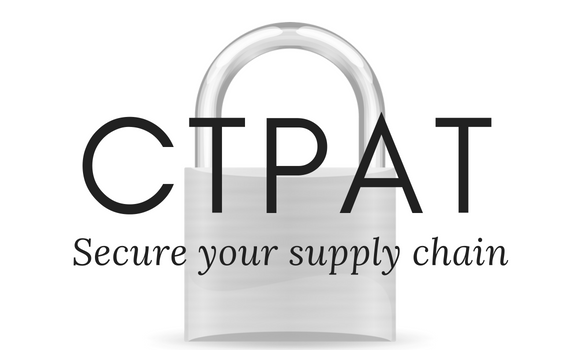
Is your company still on the fence about participating in Customs Trade Partnership Against Terrorism (CTPAT)?
Are these benefits not enticing enough?
- less CBP examinations
- front of the line inspections
- possible exemption from Stratified Exams
- shorter wait times at the border
- assignment of a Supply Chain Security Specialist
- access to the Free and Secure Trade (FAST) Lanes at the land borders
- a secure supply chain (hence your reputation)
Here are a couple of incentives that may sway your company’s mind: Trusted Trader status and the loss of business opportunities.
Trusted Trader Status
Trusted Trader is the integration of the CTPAT and (ISA) Importer Self-Assessment Program. Although Trusted Trader status is not operational yet, it may be as early as the fall of 2018.
This status will consist of multiple tiers, and importers who participate in both CTPAT and ISA will be at the highest tier and have the maximum Trusted Trader status. Currently, an importer cannot apply for ISA unless they are CTPAT certified. Participating in CTPAT is the first level of Trusted Trader status and the first step to gaining the full benefits listed above.
A Loss of Business Opportunities
U.S. Customs strongly advises all CTPAT partners to encourage their business partners to participate in CTPAT. Many importers have taken this message to heart and are requiring importers they purchase from domestically to also be CTPAT certified, in order to do business with them. Why? A well-recognized company does not want to be linked with a supplier who experienced a security breach within their supply chain, no matter how small the supplier.
As U.S. Customs continues to mutually recognize the supply chain security programs of other countries*, we are seeing more foreign participants requiring their international trade partners to participate in their own country’s supply chain security program. Foreign manufacturers understand inspection of their cargo is minimal when their entire supply chain is certified in mutually recognized supply chain programs, resulting in quicker processing time of their cargo and availability of their product in the market.
Doing business with companies certified in mutually recognized supply chain programs lessens the burden of work when assessing your supply chain. You don’t have to assess a business partner that is already certified in a supply chain program–they’ve already done that for you, and their Customs agency has confirmed that they’ve done their due diligence by certifying and validating them.
Instead of thinking about whether your company should participate in C-TPAT, ask yourself this: can we afford additional exams because we are not a Trusted Trader? Can we afford to lose business opportunities because we aren’t certified?
*U.S. Customs & Border Protection mutually recognizes the following foreign supply chain programs: Canada, Dominican Republic, EU, Israel, Japan, Jordan, Korea, Mexico, New Zealand, Singapore, and Taiwan.
By Beverley Seif

